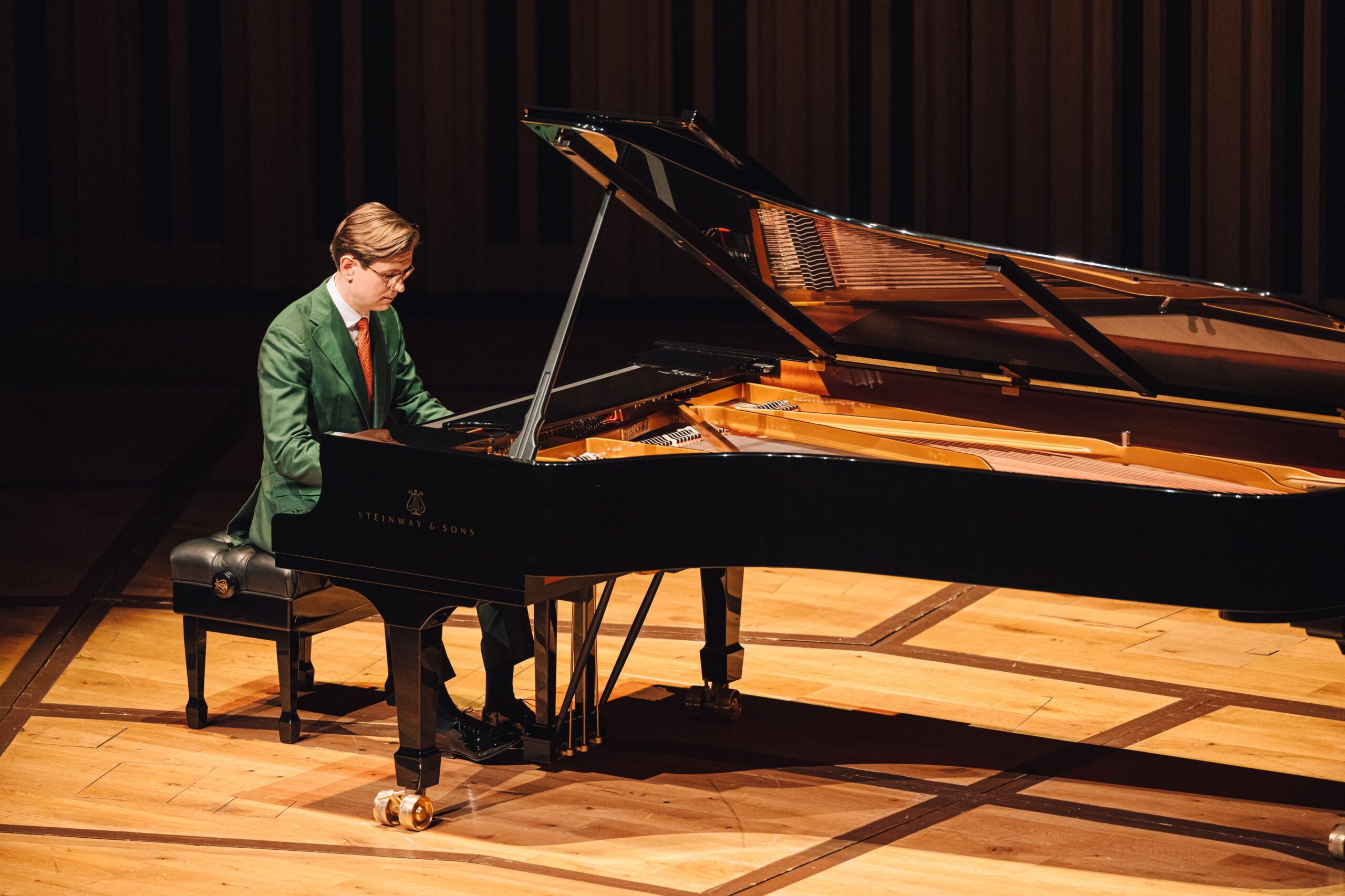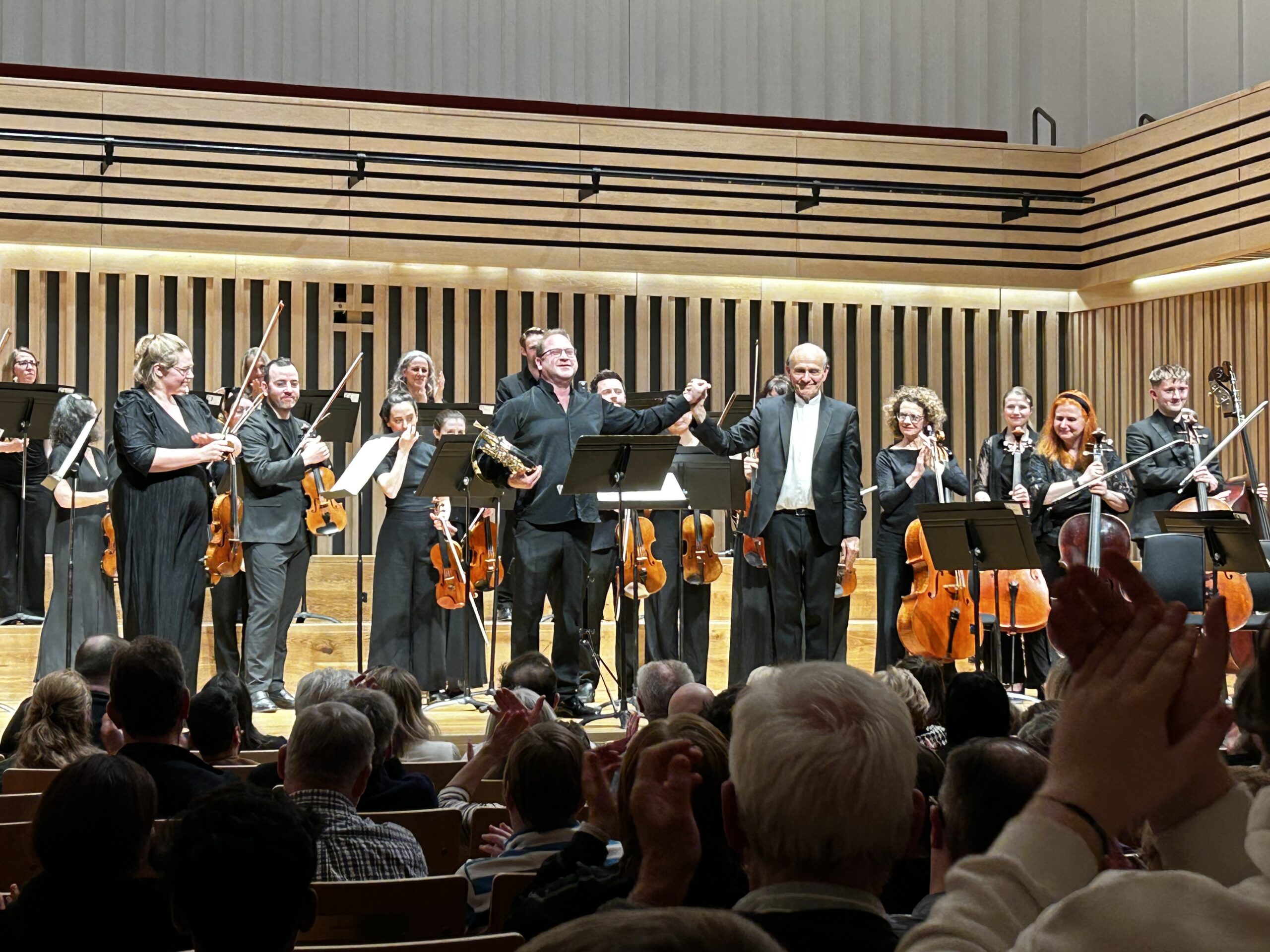North Yorkshire’s Ryedale Festival continues to delight with a tantalising mix of concert programmes in glorious locations in and around the county
Now in its 43rd year and the twelfth under the artistic direction of pianist Chris Glynn, this year’s Festival has staged seven premieres, and artists including Felix Klieser, Rachel Podger, Fleur Barron, the Piatti Quartet and Royal Overseas League winner accordionist Ryan Corbett amongst a whole host of others, in 26 venues across Yorkshire.
Thoroughly Good attended a handful of events in the last week of the festival including the guitar duo Katona Twins, the world premiere of Julian Anderson’s Ice Quartet written for the Piatti Quartet and Sarah Frances Jenkin’s Halfway to Zenith performed by the Marian Consort, and an electrifying performance of Saint Saens’ Piano Trio given by the Van Baerle Piano Trio at Castle Howard.
Concert format
Ryedale’s double and triple concerts are a seemingly neat foil for what some consider a tired convention: multiple artists stage 30-minute concert programmes for two or three 100-strong groups of audience members that move from one performance to another over the course of an evening. In between concert-goers get the opportunity to nose around somebody else’s lavish garden for ideas on planting, taking in dramatic skies, grand vistas and elegant architecture.
Modest suppers and low-slung picnic chairs are invited at the owner’s discretion. The music nestles comfortably in between leatherbound books, porcelain busts and exquisite antiquities roped off from overly-interested members of the public. A cool breeze mitigates the humid day that has gone before. Heart rates are reduced. The pace is entirely different. If this is what retirement looks like, bring it on.
New works
At Castle Howard, there was a mixed lineup of works and performers that satisfied the curious, the officiandos and underlined the industry’s commitment to stretch and find the best, most exciting performances.

In the opulent oddly oppressive-feeling chapel, Sarah Frances Jenkins’ Halfway to Zenith. Here, Jenkins demonstrates a canny knack utilising an instantly likeable musical langauge with distinctive narrative arc and edgy melodic line that turns the head and relaxes the shoulders. Down the stone corridor in the cavernous Great Hall (which is considerably taller than it is long), harpist Catrin Finch shines in a glittery jacket and boots alongside violinist Aoife Ní Bhriain evoked a contemporary TV montage vibe with music from their duo album released last year Double You. Romantic repertoire is found in the glorious Long Gallery where the Van Baerle Piano Trio perform, an effortlessly captivating ensemble whose ability to match one another’s instrumental voices made this a hugely compelling performance.
The variety in each programme acts as a valuable antidote, a mitigation for any element that might risk being too challenging in execution. A perfect balance of challenge and reassurance that both tempts and reassures. Shifting location after short bursts of performance (no concert lasts more than around 40 minutes) there’s never a risk that anything or anyone ends up feeling uncomfortable. The different locations also provide visual variety too. Architecture, nature, and music. There is something for pretty much nearly everyone.

The glorious Sledmere Hall played host to the sister event the night before – a double concert of guitar duos from the rock star Katona Duos whose fusion of prog rock, Arabic and Scarlatti shouldn’t, on paper, have worked and yet do effortlessly. In Sledmere House Chapel the ingenious tall floppy-haired twins from Hungary drew on a myriad of sounds from their instruments created synthesised sounds metallic flourishes, murmuring choruses and trembling string sections from guitars hung low around their waists like rock stars with little fuss or bother. Fireworks for the ears in this all too-short programme.
To conclude, the premiere of Julian Anderson’s Ice Quartet. Anderson’s musical language is entirely new to me despite his considerable contribution to the repertoire and the high regard he’s held. His modest introduction did much to establish the scene – the work was conceived in January 2024 during a visit to Oslo where daytime attire involved sturdy boots and thick coats. The order of movements in this work is decided upon by the performers, making any kind of review challenging. Yet, despite the seemingly varied order Anderson’s musical ideas took on, there remained a compelling story baked into the material. Like the Jenkins, Byrd and Weekles the Marion Consort performed the night after there was something about Anderson’s writing that triggered curiosity. The way to introduce new music is to mix up the sensory experiences in grand locations it seems. No one element becomes overbearing, or risks disappointing.
The Unthanks
In Ryedale’s spiritual home – Malton – folk duo The Unthanks played to an enthusiastic capacity crowd. The Scarborough sisters whose debut saw them busk on the streets of the coastal town wowed the audience with old favourites, TV tie-ins and the anticipatory excitement of their BBC Proms appearance at the Nick Drake celebration the night after.

The Unthanks musky microphone technique made the melancholy inherent in the many folk tunes they draw upon in their eclectic set delicious, dark yet comforting. The effect is reassuring, consoling and hopeful, with wistful reminisces of the late great Kirsty McColl. And whilst King of Rome, A Great Northern River, and Magpie – the track that featured on BBC Four’s Detectorists that helped establish the group’s wider reputation – were enthusiastically and appreciatively received, it was Mount the Air with Lizzie Jones’s ravishingly melancholic trumpet solo that brought tears to the eye in the auditorium and on stage.
Quite why so many folk acts (as this evening) make light of their inclusion in a classical music festival (last year’s Ryedale folk act reportedly made the same gag) seems to overlook both genre’s shared historical connection and specifically the work of the late 19th-century musicologist Cecil Sharp in curating English folk song.
Wider strengths
Long celebrated and much-admired, Ryedale continues to deliver on an implicit promise of rigour, quality and splendour. It can consistently be relied upon to introduce new and interesting performing talent that delivers and delights. This year’s programming manifests the Festival’s values, providing new and familiar for an open, curious and appreciative audience.
Ryedale’s credentials are to be found not only in its output but in the appetite of its audiences. In this way, Ryedale demonstrates self-confidence in respecting what its audiences values: a delicate balance of new, familiar and unexpected. Its list of supporters is telling: the John Thaw Foundation, and the William Walton Trust, amongst others, in addition to an A4 page and a half of patrons, friends and members.
The accomplishment of this strong community of supporters, underpinned by Arts Council England and the Department of Housing and Local Government (formerly Levelling Up) is a foil for the negative and often hostile discourse that sprung up after Arts Council England’s shifting budget priorities saw large scale organisations funding slashed. Ryedale is one of many similar arts organisations that consistently bring arts to a rural location that wouldn’t usually have easy access to high-quality music-making.
Weak spots
Yet, there is grit in the engine for those outside of the locality. If you’re attending without a car travel is difficult.
Taxis are at a premium (my taxi driver rejected two requests during my journey to the Monday night concert simply because it would preclude him from potentially higher earnings on the night, a situation that could have been eased by having more available drivers).
The accommodation offer is also stretched, the quality of which is not quite commensurate with the luxurious surroundings of the Yorkshire countryside. Compared to 2022, the strains on the hospitality sector were laid bare this year.
The industry is stretched, staff thin on the ground, with some businesses operating on a similarly best endeavours the way they were in those months they were allowed to open during the pandemic (just minus the social distancing and rigorous cleaning procedures).
In Malton – ‘the food capital of Yorkshire’ – there are limited eateries and bars, and of those who do open, tables are at a premium. For the tourist trap that the market town of Malton is, visiting here is, at the present time at least, a hit-and-miss affair.
That’s not a problem for Ryedale’s core audience of local supporters, but it does highlight how reliant the entertainment and hospitality sector is, and perhaps how little hospitality mattered to the 55% of Ryedale who voted to leave the European Union in the Brexit Referendum.
The Ryedale Festival concludes on Sunday 28th July



